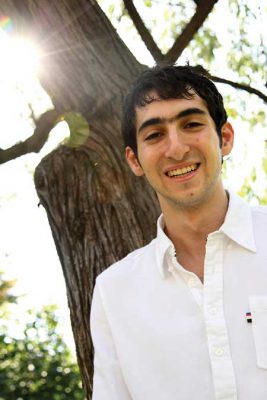
By Katherine Gombay
The video starts with someone whistling and a map of the Arab-speaking world. Then the words ‘Arab world stats’ are typed into a search engine. What follows on screen are dismal figures for literacy, malnutrition, unemployment and poverty overlaid on the Arab world while English and Arabic radio clips fill in the picture. Eventually we see a group of young people proclaim, “We are the Arab Development Initiative and together we’re going to launch a Renaissance in the Arab world.”
The video is just one of the tools being used by a group of students, based mainly at McGill, to drum up interest in the Envisioning Arabia Summit, Oct. 7-9. With 450 delegates expected from as far off as Egypt and Jordan, and from schools like Harvard, Yale and the University of Toronto, the Summit aims to bring Arab youth together to exchange ideas and work for the development of the Arab world. The roster of speakers includes a NASA scientist, experts from the World Bank, and the President of Jerusalem University, along with poets, architects, green experts and community organizers. The master of ceremonies is Ahmed Shihab-Eldin of Al Jazeera English program The Stream, who will talk about using social media to bring about change in the Arab world.
Although the ongoing revolutions in parts of the Arab world serve as the backdrop for the Summit, the original idea for it grew out of a sense of frustration among some members of the Arab Students Association about the way Arabs see themselves today. Oubai Elkerdi, one of the Summit organizers explained: “We all had these negative stereotypes about Arabs, about how we are consumers and don’t produce anything of value. But I read a lot about the Islamic Golden Age, when we contributed to different fields of knowledge, and I thought ‘we’re 360 million people, we have great minds, but they’re not being really well used.’” Elkerdi continued, “So far, we only have one Nobel Prize winner in a scientific field. It’s a bit embarrassing. We wanted to change that by getting the youth to work together so that we can contribute something meaningful to the Arab world.”
The Summit will take place over two and half days, with sessions covering topics such as health and well-being, society and culture, education, science and technology, economic development, and law and human rights. Organizers have also set time aside for free flowing discussion
With plans for the development of Arabpedia – a website with information about the Arab world – and for fostering and supporting development projects, the organizers have big hopes of instigating real changes in the Arab-speaking world.
“When you bring bright minds together, anything is possible,” Elkerdi said. “We’re trying to turn people’s attention to the Arab world. We want not just Arab scientists and engineers, we need more Arabic arts and movies and music. We’ve already had one golden age, why can’t we do it again?”
For more on the Summit visit www.arabdevelopment.com/en/content/envision-arabia-summit
